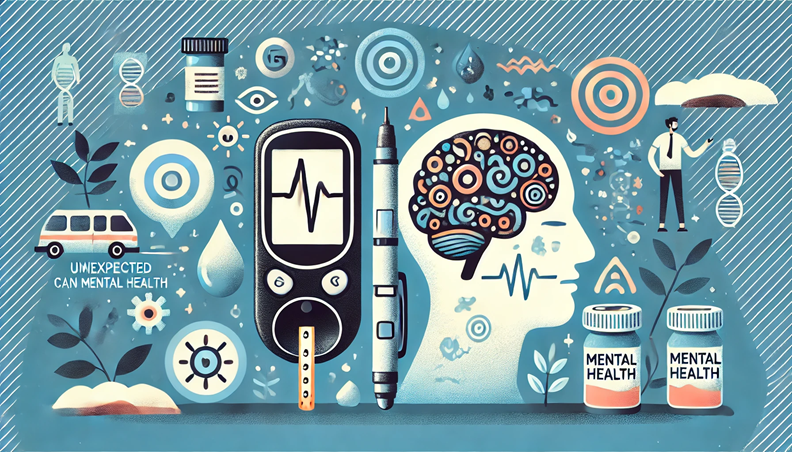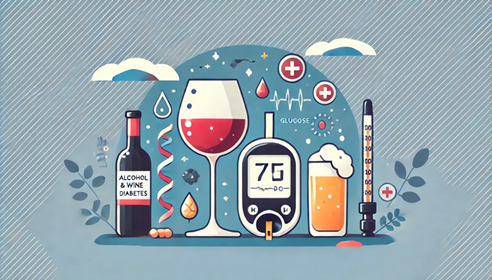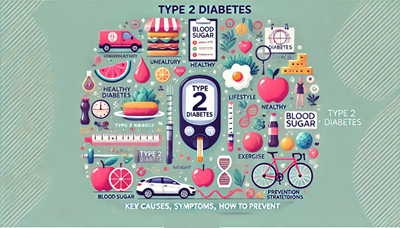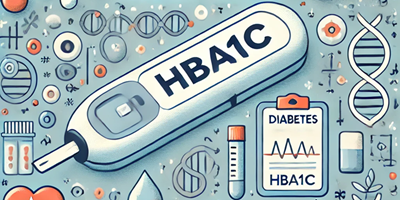Unexpected Ways Diabetes Can Impact Mental Healt

Living with diabetes is a lifelong journey that affects not only physical health but also mental and emotional well-being. While much attention is paid to managing blood sugar levels, insulin, and diet, the psychological aspects of diabetes often receive less attention. However, diabetes can have a profound impact on mental health in ways that might not be immediately obvious. In this article, we’ll explore some unexpected ways that diabetes can influence mental well-being, as well as tips for coping with these challenges.
Table of Contents
The Link Between Diabetes and Mental Health
Diabetes and mental health are closely connected, with each influencing the other in a variety of ways. The daily management of diabetes can be overwhelming, leading to feelings of stress, anxiety, and even depression. On the other hand, mental health issues can impact one’s ability to manage diabetes effectively, creating a vicious cycle.
Understanding this connection is crucial for those living with diabetes, as addressing mental health concerns can significantly improve overall quality of life and diabetes management.
Stress and Diabetes Management
Living with diabetes often involves constant monitoring of blood sugar levels, taking medication or insulin, and planning meals. This ongoing attention can lead to chronic stress. When stress levels are elevated, the body releases hormones like cortisol, which can increase blood sugar levels, making it even harder to manage diabetes.
Symptoms of Stress in People with Diabetes
- Feeling overwhelmed or out of control
- Difficulty sleeping or changes in sleep patterns
- Fatigue and lack of energy
- Changes in eating habits
- Irritability and mood swings
Managing stress is key to maintaining good mental health while living with diabetes. Techniques like mindfulness meditation, yoga, or even simple deep-breathing exercises can be beneficial.
The Role of Anxiety in Diabetes
People with diabetes may experience anxiety for various reasons, including fear of hypoglycemia (low blood sugar), concerns about long-term complications, or social anxiety related to managing diabetes in public. This can lead to a state of hyper-vigilance where individuals are constantly worried about their blood sugar levels, which can be mentally exhausting.
How Anxiety Affects Blood Sugar Control
Anxiety can cause the body to release adrenaline, a hormone that can increase blood sugar levels. This can make it harder to maintain stable glucose levels and may require more frequent adjustments to medication or diet.
Coping Strategies for Diabetes-Related Anxiety
- Educate yourself about diabetes management to feel more in control
- Practice relaxation techniques such as guided imagery or progressive muscle relaxation
- Talk to a healthcare professional about any anxiety symptoms that may be affecting your diabetes management
Depression and Diabetes: A Two-Way Street
Depression is more common in people with diabetes compared to the general population. The relationship between diabetes and depression is complex and bidirectional, meaning that each condition can make the other worse. Depression can lead to poor self-care, which may result in missed medications, unhealthy eating, or lack of physical activity—all of which can negatively impact blood sugar control.
Signs of Depression in Individuals with Diabetes
- Persistent feelings of sadness or hopelessness
- Loss of interest in activities once enjoyed
- Changes in appetite or weight
- Difficulty concentrating
- Fatigue or lack of energy
Treatment Options for Diabetes-Related Depression
- Psychotherapy: Cognitive-behavioral therapy (CBT) is a popular form of talk therapy that can help individuals change negative thought patterns.
- Medications: Antidepressants may be prescribed by a healthcare provider if the symptoms are severe.
- Lifestyle changes: Regular physical activity and a healthy diet can have positive effects on mood.
Diabetes Burnout – A Little-Known Mental Health Challenge
Diabetes burnout is a state of emotional exhaustion that results from the continuous demands of managing diabetes. It can make individuals feel indifferent towards their diabetes management routine, leading to skipped insulin doses, missed appointments, and less frequent blood sugar monitoring.
What Triggers Diabetes Burnout?
- Feeling overwhelmed by the need for constant blood sugar monitoring
- Frustration with the lack of a « cure »
- Experiencing frequent high or low blood sugars despite efforts to control them
Ways to Overcome Diabetes Burnout
- Set realistic goals: Instead of aiming for perfect blood sugar levels, focus on making gradual improvements.
- Seek support: Talking to a diabetes educator, support group, or counselor can help alleviate feelings of isolation.
- Take breaks: It’s okay to ease up on strict diabetes management every once in a while; just ensure that it’s done safely.
Cognitive Effects of Diabetes
Diabetes, especially when poorly controlled, can impact cognitive function. High blood sugar levels can damage blood vessels, including those in the brain, leading to reduced cognitive performance. This is particularly concerning for individuals with type 2 diabetes, who may be at an increased risk for cognitive decline and even dementia.
How High Blood Sugar Affects Cognitive Health
- Can cause brain fog and difficulty concentrating
- Increases the risk of memory problems over time
- May contribute to conditions like mild cognitive impairment (MCI) and Alzheimer’s disease
Strategies to Protect Cognitive Function
- Keep blood sugar levels in target range: Consistent monitoring and management can help protect brain health.
- Engage in mental exercises: Activities like puzzles, reading, or learning a new skill can keep the brain active.
- Maintain a healthy lifestyle: Regular exercise and a balanced diet support both cognitive and physical health.
Social Isolation and Its Impact on Mental Health
Diabetes can sometimes make individuals feel different or disconnected from others, especially if they need to follow a special diet, take medication at specific times, or check blood sugar in social settings. This sense of being « different » can contribute to social isolation and loneliness, which are risk factors for depression and anxiety.
Ways to Combat Social Isolation
- Join a support group: Connecting with others who have diabetes can provide a sense of community and understanding.
- Educate friends and family: Helping loved ones understand diabetes can reduce feelings of isolation and foster support.
- Stay active in hobbies and interests: Maintaining involvement in social activities can help combat loneliness.
FAQs on Diabetes and Mental Health
Can diabetes cause mental health issues?
Yes, diabetes can lead to mental health challenges such as stress, anxiety, depression, and even cognitive difficulties. The demands of managing the condition, fear of complications, and the effects of fluctuating blood sugar levels can all contribute to these problems.
How can I manage diabetes-related stress?
Managing diabetes-related stress involves practicing relaxation techniques, setting realistic goals, seeking support from a mental health professional, and using time management skills to reduce feelings of being overwhelmed.
What should I do if I feel depressed because of diabetes?
If you feel depressed, it’s important to speak with a healthcare professional. They can suggest appropriate treatment options, such as therapy or medication, and recommend lifestyle changes that can help improve your mood.
Can controlling blood sugar levels improve mental health?
Yes, keeping blood sugar levels within the recommended range can help stabilize mood, reduce anxiety, and improve overall well-being. Proper diabetes management also reduces the risk of complications that may negatively affect mental health.
Conclusion
Diabetes can have a significant impact on mental health in ways that extend beyond blood sugar management. Recognizing the signs of stress, anxiety, depression, diabetes burnout, and cognitive changes can help individuals seek appropriate support and treatment. Taking steps to address these challenges, whether through lifestyle changes, professional help, or social support, can greatly enhance one’s quality of life.
Living with diabetes is not just about managing blood sugar—it’s about managing your mental and emotional well-being as well. Embracing a holistic approach to diabetes care that includes mental health can lead to a healthier, happier life.
By understanding the unexpected ways diabetes can affect mental health, you can take proactive steps to improve both your mental and physical well-being.






